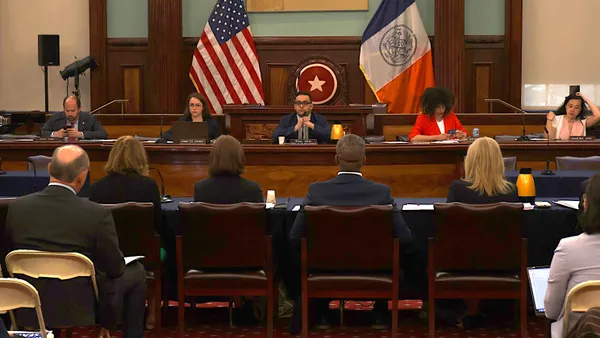Dive Brief:
- A jury must decide whether age discrimination caused an older worker's dismissal from Hewlett Packard, the 6th U.S. Circuit Court of Appeals recently found, reversing a lower court's earlier ruling (Sloat v. Hewlett Packard Enterprise Company, No. 20-6169 (6th Cir., Nov. 17, 2021)).
- A district court found that the plaintiff, who developed training programs for Hewlett Packard salespeople, lacked enough evidence to make a claim of age discrimination and retaliation. The 6th Circuit disagreed. The plaintiff alleged his manager badgered him to retire — behavior that could lead a jury to conclude that the manager believed his employee was "too old for the job," the court said.
- The court opined similarly in reinstating the plaintiff's retaliation claim. When the worker brought concerns about ageism to his manager at the instruction of Hewlett Packard HR, the manager screamed at him, he alleged in court documents. The manager also allegedly avoided speaking with him after the encounter. The worker eventually received a new manager, who fired him during their first conversation.
Dive Insight:
Inquiries about a worker's retirement can show age bias. While employers need not ban all questions on the topic, a slew of court cases warn that it's a subject that demands tact.
The 6th Circuit found the Hewlett Packard manager's probing about retirement to be evidence of discrimination. But the 5th Circuit last year sided with an employer that fired a worker who was questioned about retirement.
The cases exhibited two key differences. The Hewlett Packard manager allegedly approached the plaintiff about retirement on 10 separate occasions. The plaintiff who appealed to the 5th Circuit said his manager made three inquiries. Performance played a role in the courts' arguments, as well. The Hewlett Packard employee received several years of positive performance reviews, but the 5th Circuit plaintiff was fired for the "classic nondiscriminatory reason of poor performance," the court quipped.
Employers need to be careful in how they talk about retirement; as the 6th Circuit noted, it's often closely associated with age. Age-related comments, including those about retirement, are frequent subjects of age discrimination lawsuits.
The 6th Circuit determined last year, for example, that comments made before and during a Michigan worker's termination evidenced age discrimination. After the employee received an award for his 40 years of employment, his new and younger supervisor commented: "Old man, you been here longer than I am old. Aren't you ready to retire?" When the man was terminated, he was allegedly told that he was "getting up there in years, you're at retirement age, you go one way and the company's going the other."














